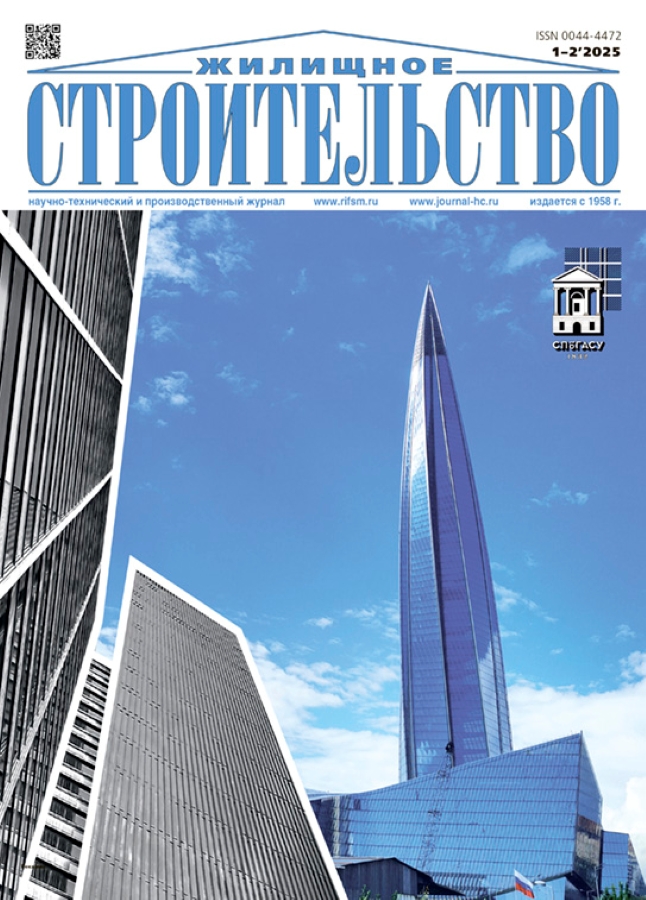Evolution of spatial location of sports facilities in the structure of Leningrad
- Authors: Vilenskii M.Y.1, Baranova A.Y.2, Lisovskiy V.G.3, Stieglitz M.S.4
-
Affiliations:
- Saint-Petersburg State University of Architecture and Civil Engineering
- Institute of Territorial Development
- St Petersburg Repin Academy of Fine Arts
- St. Saint Petersburg Stieglitz State Academy of Art and Design
- Issue: No 1-2 (2025)
- Pages: 59-67
- Section: Articles
- URL: https://ter-arkhiv.ru/0044-4472/article/view/677191
- DOI: https://doi.org/10.31659/0044-4472-2025-1-2-59-67
- ID: 677191
Cite item
Abstract
The increasing demand of the population of St. Petersburg for mass sports infrastructure makes the problem of its spatial organisation in the urban structure urgent. The article considers the actual location of sports infrastructure and the formation of its spatial system in Leningrad of the Soviet period. In order to determine the regularities of the development of the spatial system of sports facilities and its implementation, the article presents a historical and evolutionary analysis based on the synthesis of archival and bibliographic data, cartographic documents and territorial planning documents of Leningrad. The study identifies three historical stages of the actual development of the spatial system of mass sports infrastructure and reveals an imbalance in the placement of sports facilities in its inner-city territories in general and stagnation in the development of mass sports facilities.
Full Text
About the authors
M. Y. Vilenskii
Saint-Petersburg State University of Architecture and Civil Engineering
Author for correspondence.
Email: vilenm@list.ru
Candidate of Architecture, Docent
Russian Federation, 4, 2nd Krasnoarmeyskaya Street, Saint Petersburg 190005A. Y. Baranova
Institute of Territorial Development
Email: annbar2606@gmail.com
Architect, Master
Russian Federation, 9, Medikov Avenue, Saint Petersburg 190022V. G. Lisovskiy
St Petersburg Repin Academy of Fine Arts
Email: volis_99@mail.ru
Doctor of Art History, Professor
Russian Federation, St Petersburg Repin Academy of Fine ArtsM. S. Stieglitz
St. Saint Petersburg Stieglitz State Academy of Art and Design
Email: mstig@mail.ru
Doctor of Architecture, Professor
Russian Federation, 13, Solyanoy Lane, Saint Petersburg, 191028References
- Vilenskij M.Yu., Baranova A.Yu. Urban planning regulation and standardisation of mass sports infrastructure in major cities. Urbanistika. 2024. No. 2, pp. 1–26. (In Russian). EDN: SMRWTU. https://doi.org/10.7256/2310-8673.2024.2.70304
- Ivanova Yu.O. State of sports infrastructure as an indicator of socio-economic development of Russian regions. The phenomenon of the market economy: from the origins to the present day, the synthesis of digital technologies and innovative solutions. IX International Scientific and Practical Conference in economics. Sochi, March 31 – April 4, 2021, pp. 181–188. (In Russian). EDN: JUKXJF
- Lavrov L.P., Molotkova E.G., Surovenkov A.V. On assessment of the state of the urban environment in the historical centre of St. Petersburg. Architecture and Engineering. 2020. Vol. 5. Iss. 3, pp. 29–42. https://doi.org/10.23968/2500-0055-2020-5-3-29-42
- Sunik A.B. Ocherki otechestvennoi istoriografii istorii fizicheskoi kul’tury i sporta [Essays on the national historiography of the history of physical culture and sports]. Moscow: Sovetskij sport. 2010. 614 p.
- Adel’finskiy A.S. Nazlo rekordam. Opyt issledovaniya massovogo sporta [Despite the records. The experience of mass sports research]. Moscow: Delo. 2018. 384 p. EDN: ECPWRC
- Ul’yanova S.B., Sidorchuk I.V. From football to parachuting: physical education and sport at the Krasny Putilovets plant in the 1920s – early 1930s. Novejshaya istoriya Rossii. 2023. Vol. 13, No. 2, pp. 455–469. (In Russian). EDN: SCVPLN. https://doi.org/10.21638/spbu24.2023.213
- Ershova S.A. General’nye plany Sankt-Peterburga. 1703–2013 gg. [General plans of St. Petersburg. 1703–2013]. Saint Peteburg: Piter.ru. 2014. 500 p.
- Kozlov D.V. Stadiony Leningrada. 1920–1950-e. Istoriya i arxitektura [Stadiums of Leningrad. The 1920s and 1950s. History and architecture]. Saint Petersburg: Karta Petra. 2024. 124 p.
Supplementary files













